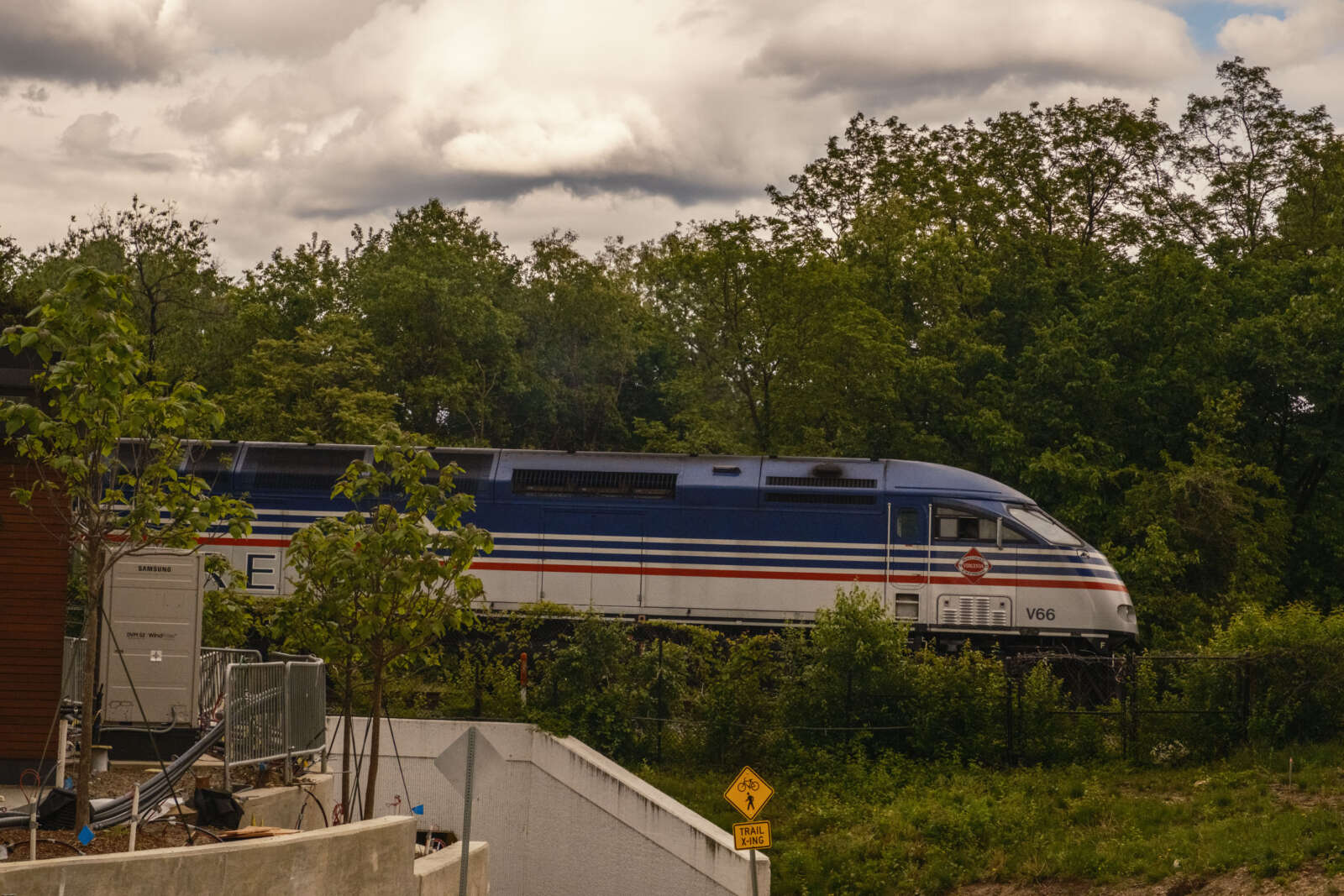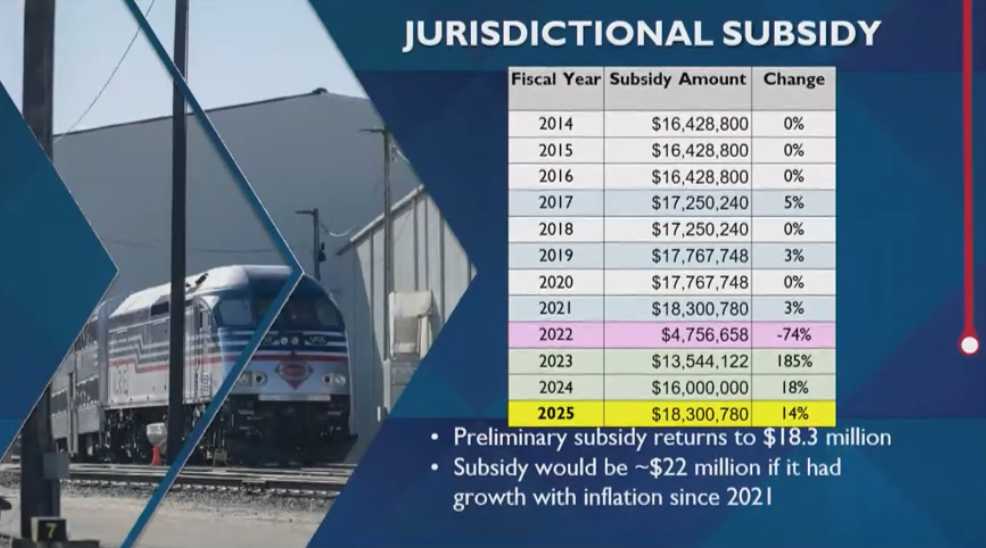
Virginia Railway Express is considering introducing Saturday service and making fares free for children.
The former would result in three round-trip trains on the lines connecting Arlington, from its Crystal City station, to Manassas and Fredericksburg. Service would head northbound in the morning and southbound in the afternoons and evenings.
Adding Saturday service is part of a bid to increase ridership on the rail by moving beyond mostly serving commuters from ex-urban counties headed to D.C.’s urban core. Average daily ridership has surpassed 6,000 and is ticking up but is far from the agency’s 2024 goal of 10,000 average daily riders. Still, looking from January 2022 to this January, VRE saw a whopping 114% growth, which Greater Greater Washington reports trumps all other commuter or regional rail systems.
“We’re moving into an all-week service for our trains,” County Board member Takis Karantonis said during a meeting last Tuesday. “Like every other major, mature metropolitan area, this kind of train service should be growing and graduating out of its mere commuter function into a real regional connector.”
Local transit advocacy group, Sustainable Mobility for Arlington County, or SusMo, also celebrates the changes for making the train more useful to Arlingtonians. County residents make up such a small fraction of riders that they are lumped in with Alexandrians and “other” riders in VRE ridership surveys, per the rail’s 2024 budget.
“This begins the process of making VRE useful for more than just commuting,” SusMo says on its website. “Arlingtonians could use VRE to safely and sustainably [take] a day-trip to Fredericksburg breweries, a flight lesson at Manassas Regional Airport, exploring historic Old Town Manassas, and more.”
VRE intends to add these routes without spending extra money by relying on smaller trains that need fewer conductors, Karantonis said. The new routes are included in the proposed budget for the 2024-25 fiscal year, which will see a total of $18.3 million in contributions from VRE’s supporting jurisdictions: Arlington, the cities of Alexandria, Manassas, Manassas Park and Fredericksburg, and Fairfax, Stafford, Spotsylvania and Prince William counties.
The proposed budget also includes a 5% increase to base fares and free rides for those under 18. Karantonis celebrated the free rides as “an opening to youth travel and families” while the fare hike could boost revenue by $1 million while possibly driving away 100 daily riders.
Multi-ride tickets will maintain the same discount structure and the current $5 fare for short-distance travel — between Union Station in D.C. and Springfield — would be made permanent. The seven-day pass, use of which plunged after the rise of remote work, would be eliminated, he said.
SusMo says these changes are much needed.
“We think this simplification is a positive step forward and VRE’s first fare increase in several years is appropriate given the cost inflation we have seen in recent years,” it said.
As for ridership, Karantonis acknowledged some Arlington bus routes ferry more than the 6,000 average daily riders VRE sees. He said the county “should really think very hard about how we can improve” the number of average daily riders. One way, he mused, could be by advertising its ease and affordability compared to driving on I-95.
“Congestion on I-95, the competing infrastructure, is completely impossible,” he said. “The cost of driving on I-95 is absolutely intimidating for a lot of people and it has been going up continuously over time.”
VRE is exploring ways to increase service, while keeping costs down, as it prepares to run out of federal pandemic-era relief funding in the coming years. Eventually, Karantonis warned, this will mean more money from the nine supporting jurisdictions.
“I very much hope the system will be able to sustain itself with its traditional funding mix, without the federal support, but as we’ve seen, this may be a challenge,” he said. “I’m almost certain we will have to discuss that but that is two years ahead.”
The $18.3 million slated to come from the nine participating jurisdictions in the 2025 budget is on-par with what they paid in 2021, the last budget decided pre-Covid. Subsidies dropped precipitously the next year, when VRE relied on federal funding to ensure jurisdictions did not bear the burden of a revenue shortfall.
Arlington County has the second-lowest contribution toward VRE after Alexandria, coming in at $190,784 or 1.2% of the overall $16 million jurisdictional subsidy for the 2024 fiscal year. Maintaining that 1.2% contribution rate would mean Arlington’s contribution would increase by about $30,000.

VRE has a few more years of federal pandemic-era relief funding available but Karantonis said he struggles with what will happen once that funding peters out.
Board member Matt de Ferranti stressed that this is a future problem, whereas Arlington faces “an enormous problem right now for Metro.” The region’s rail system is warning of severe service cuts — including fewer bus routes, reduced operating hours, longer waits and station closures — due to a projected $750 million budget shortfall after the end to federal aid.
“We are facing a challenge, regionally, as far as budgets,” he said. “We’re facing a challenge in Arlington… Yes, I’m worried about VRE six years down the road, I’m worried about a lot of other things six years down the road.”

